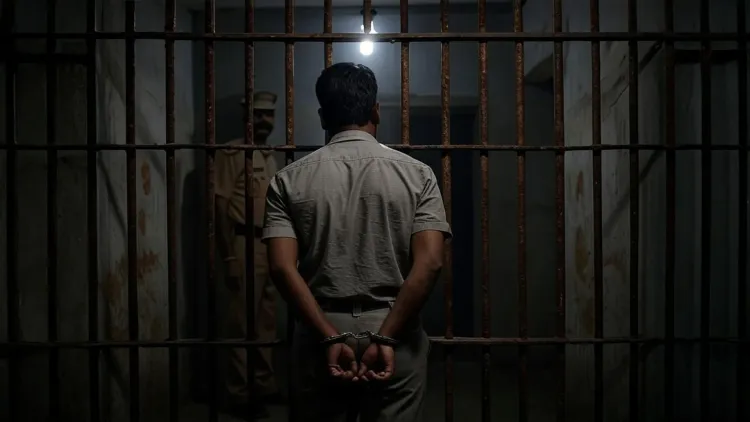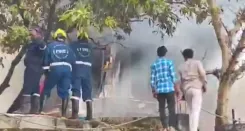Did Odisha Police Really Capture a Notorious CPI (Maoist) Leader?

Synopsis
Key Takeaways
- Odisha Police successfully apprehended a Maoist leader.
- The operation was based on credible intelligence.
- Significant arms and materials were confiscated.
- Kunjam Hidma had been involved with Maoists since age 14.
- This incident highlights ongoing challenges in combating insurgency.
Bhubaneswar, May 29 (NationPress) The Odisha Police have apprehended a notorious Maoist leader after a fierce exchange of gunfire with CPI (Maoist) members in the Koraput district on Thursday.
The captured insurgent, Kunjam Hidma, also known as Mohan, is originally from Janaguda village in the Bijapur district of Chhattisgarh.
Kunjam was serving as an Area Committee Member (ACM) within the outlawed Communist Party of India (Maoist). According to police reports, actionable intelligence was received regarding the presence of a group of banned CPI (Maoist) members in the forested area adjacent to Petguda village under the Boipariguda Police Station. Consequently, a specialized operation was initiated by the Koraput district police with the assistance of the District Voluntary Force (DVF) on Wednesday.
“In the early hours of 29.05.2025, the DVF team spotted a group of Maoists camped on a hill. As the team approached to encircle them, the Maoists opened fire and fled into the jungle. In self-defense, the team responded with controlled fire. Following a thorough search, one Maoist cadre was captured while trying to conceal himself in nearby bushes, while others escaped,” stated the Koraput district police.
Authorities also confiscated an AK-47 rifle, 35 rounds of ammunition, 27 electric detonators, 90 non-electric detonators, approximately 2 kg of gunpowder, steel containers, radios, earphones, a Motorola Walkie-Talkie, a spare battery for the Walkie-Talkie, knives, and Maoist literature.
Kunjam Hidma had joined the Maoist organization at the young age of 14 in 2007, initially becoming a part of the Bal Sangham and Jana Natya Mandali (JNM), the cultural arm of the Maoists.
By 2019, he had risen to the position of ACM and was equipped with an SLR rifle. Kunjam has been implicated in numerous instances of armed conflict and has been involved in anti-government and anti-national activities across Odisha, Andhra Pradesh, and Chhattisgarh over recent years.










